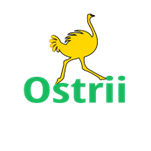Animated videos in microinsurance: Improving financial literacy in the Pacific Islands
Financial literacy is an important barrier to adopting and using microinsurance services worldwide. Many microinsurance schemes have relied on formal literacy efforts, though it is widely accepted that informal training groups can improve financial literacy. While both approaches have their merits, technology can play an important role in improving financial literacy – especially among hard-to-reach users.
In November 2023, Rural Inclusion, a technology-focused social enterprise, and Solutions Studio, a Fiji-based digital solution developer, launched a new project to provide capacity building on financial literacy and disaster risk insurance to underserved users in the Pacific Islands. The goal of the project is to build households’ knowledge of financial services, with the aim of increasing their adoption of climate disaster insurance products. The project is supported by the United Nations Capital Development Fund (UNCDF), under the Pacific Insurance and Climate Adaptation Programme (PICAP).
“We are delighted to start this new collaboration in a region especially vulnerable to the impacts of climate change. We anticipate that the intervention, supported by PICAP, will achieve increased levels of awareness among target communities.” Jack Farren, Co-Founder & Chief Executive Officer of Rural Inclusion |
The project involves developing a digital education platform for the region and designing video-based interactive training modules for rural communities (Figure 1). The target audience includes smallholder farmers, fisherfolk, and micro, small and medium enterprises (MSMEs) across the Pacific Islands. Given the significant financial inclusion gender gap in the region, the project has a specific focus on reaching underserved women: the design of the content and characters in the interactive video stories is gender inclusive. This is also central to PICAP’s strategy.
The first interactive capacity-building modules were launched in early 2024 in Fiji. These modules are expected to roll out in the second half of 2024 across other Pacific Islands, namely Kiribati, Samoa, the Solomon Islands, Tonga, and Vanuatu. In addition to PICAP’s partners, Rural Inclusion and Studio Solutions will also be working with other local organisations in each country to disseminate the training programme. The project is due to be completed by December 2025 and its objective is to reach 900 individuals during the pilot phase.
Figure 1: An example of an animated video

Source: Rural Inclusion
Why Rural Inclusion’s capacity-building is different
Rural Inclusion’s venture is by no means the first such capacity-building initiative launched in the Pacific Islands. Other training programmes have previously been launched to focus on improving digital and financial literacy, and climate disaster risk insurance. Typically, many of these have relied on a facilitator leading a workshop in person. Within the microinsurance space, it is widely acknowledged that simple, jargon-free marketing and informal training groups – led by an engaging facilitator – can lead to improved financial literacy.
While facilitators continue to play an important role – even in how Rural Inclusion offers its content, the company has adopted a digital-first approach through Ostrii, its mobile platform. Rural Inclusion focuses on developing training curricula that are scalable across countries, while still using the relevant local language of the target community. In addition, its content is designed to be enjoyable and insightful for individuals with a limited understanding of financial products and services. The animated videos are expected to increase engagement and simplify complex topics using character-based dramas in local languages.
 Spotlight on Ostrii – Rural Inclusion’s digital platform Ostrii is Rural Inclusions’ award-winning offline mobile application that is used by partners’ community-based agents to deliver training and monitor impact in rural communities. Rural Inclusion uses Ostrii to run digital curricula using 2D and 3D animation in local languages for partners. As of February 2024, Ostrii has been deployed for projects in seven countries in Africa and Latin America: El Salvador, Kenya, Malawi, Rwanda, Tanzania, Uganda and Zambia. Ostrii earned two awards in 2023:
|
Partnerships remain central to financial literacy efforts
Rural Inclusion’s approach is based on having partners to develop content for and who would subsequently be able to disseminate the videos. This initiative shows that partnerships are indispensable to designing microinsurance products and reaching scale when distributing products. They are also crucial to improving financial and digital literacy as insurance providers are likely to rely on partners for their reach and intricate knowledge of target communities. In this example, a combination of local and international partnerships shows how an offline digital platform can be used to improve literacy at scale – something that may inspire other industries targeting underserved communities.